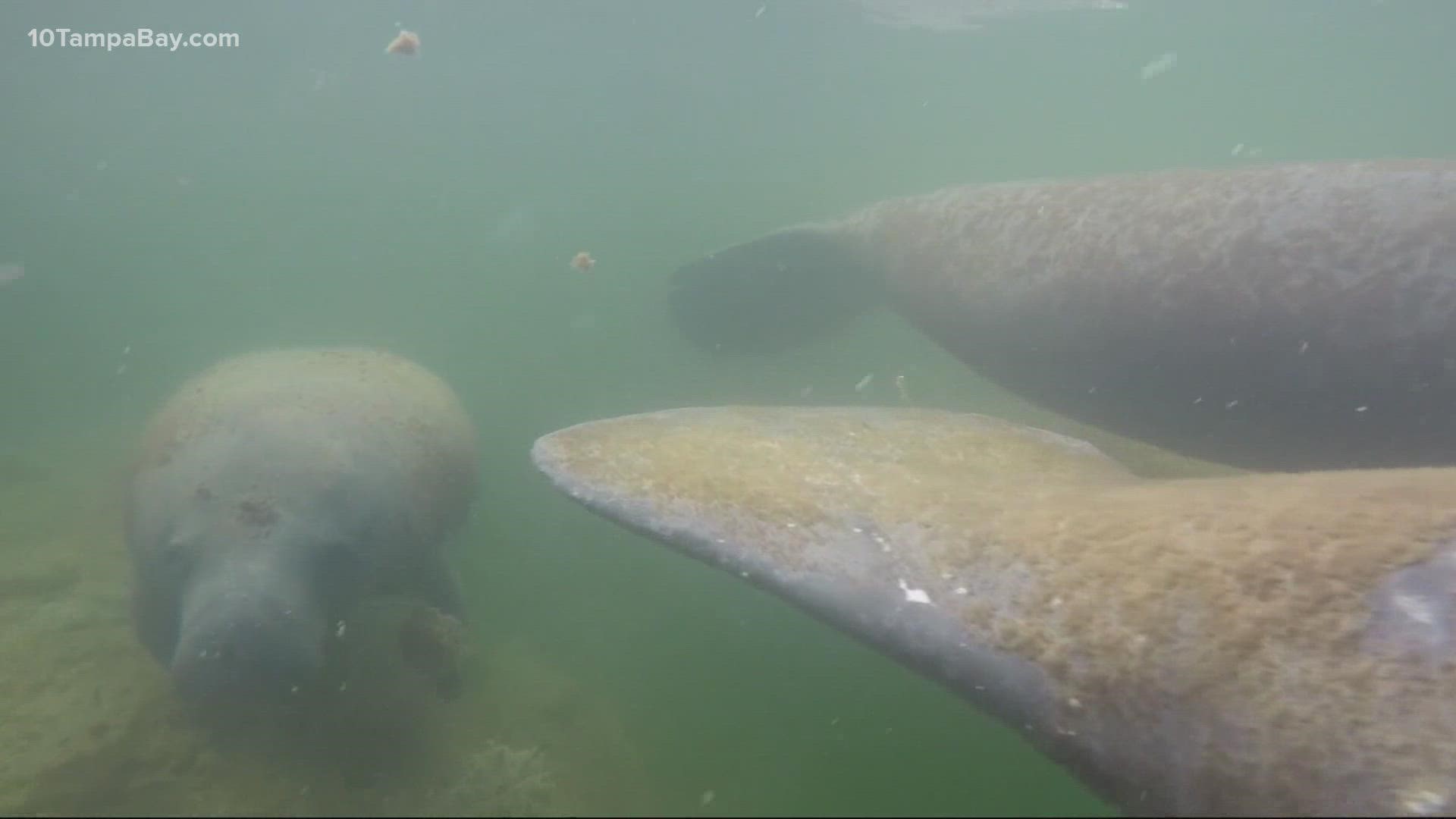INDIAN RIVER, Fla. — The fight to protect and save Florida's starving manatees is ongoing and while experts say it's too early to call efforts a true success, they do know the beloved sea cows have a preference for a particular type of food.
It's romaine and butter lettuce. The information was shared during a meeting Wednesday with the joint command between the Florida Fish and Wildlife Conservation Commission and the U.S. Fish and Wildlife Service investigating the die-off of an increasing number of manatees.
“We did have cabbage a couple of weeks ago and we found that the animals were not as enticed by it as the romaine and butter leaf,” FWC’s Sarah Barrett said. “So, we continue with those two varieties. And they seem to be eating both of those very well.”
Barrett says the joint command is receiving shipments of the lettuce about twice a week. The amount totals about 20,000 pounds a week or 3,000 pounds a day and comes from three Florida-based growers.
So far, FWC says it has spent about $18,000 on produce, most of it since the middle of January when the manatees began eating the lettuce provided at the Florida Power & Light's Cape Canaveral Clean Energy Center "in earnest."
The vast majority of product, officials say has been paid for with donations to the Fish and Wildlife Foundation of Florida.
As many as 800 manatees gather a day at the center to eat, Reinart says.
With the feeding program still in its infancy, biologists admit it’s hard to measure success. But each manatee they save from starvation or even rehabilitation is seen as a small victory. A ray of hope in what’s admittedly been a heartbreaking period.
And sadly, they say, it won’t end with the change of season.
“Because I believe we’ll probably have to do this again next winter,” Reinert said. “Because we’re not going to solve our seagrass woes in the Indian River Lagoon over the course of the next year. So, this will probably continue. “
The project is also becoming a national team effort with the Columbus Zoo recently taking in four manatees to make more space at SeaWorld. Wildlife workers are also making their way here from all over.
“I’ve got one actually coming from Alaska today,” Jon Wallace with the U.S. Fish and Wildlife Service said. “Because they want to help.”
Still, despite the assistance and encouraging eating habits of the manatees, 2022 is still shaping up to be an above-average year for manatee deaths, contributing to the ongoing Unusual Mortality Event (UME).
According to the Jan. 28 report from FWC, 97 manatees have been found dead in Florida since Jan. 1. That's the second-highest number over the last five years in that time period, sitting behind 2021's record number of 170.
Most manatee deaths are happening on Florida's east coast between Nassau and Monroe counties, experts say. Most are happening due to other causes not related to watercraft collisions.
Cold stress is another threat to manatees, in addition to starvation. Florida's recent cold temperatures have not helped the sea cows.
Seagrass, the manatees' primary food source, has been dying off and causing many manatees to starve.
"Starvation is a chronic condition," Reinert said, adding that feeding and saving the manatees will not be a quick fix with instant results.
Still, experts say they are hopeful their efforts will have a positive impact on the manatee population and the surrounding environment.
“I think most of us are hopeful,” said Barrett, “That the impact that we are making are going to have a positive influence on the species over the long run.”
Manatee rescues have also been higher than normal, Reinert said. Data from Jan. 28 show 14 animals have been rescued so far this year.
The joint command says it is prioritizing manatee rescues and retrieving dead manatees. It is also working to increase capacity to care for sick and injured manatees.
The task force says most reports of dead or distressed manatees come from the public and are an important part of helping the marine mammals.
If you see a sick, injured, dead or tagged manatee, call FWC's Wildlife Alert hotline at 1-888-404-3922. Experts remind people not to try and help the animals because manatee rescue is a skill that requires training and resources.
Researchers say the UME is attributed to starvation "due to the lack of forage in the Indian River Lagoon. Historically, the lagoon has provided essential habitat to manatees year-round and during the colder winter months many manatees depend on warm water refuges in this area."
You can find more information about manatees and the continued efforts to save them at MyFWC.com/Manatee. Click on the “Learn More” button in the Manatee UME banner.

